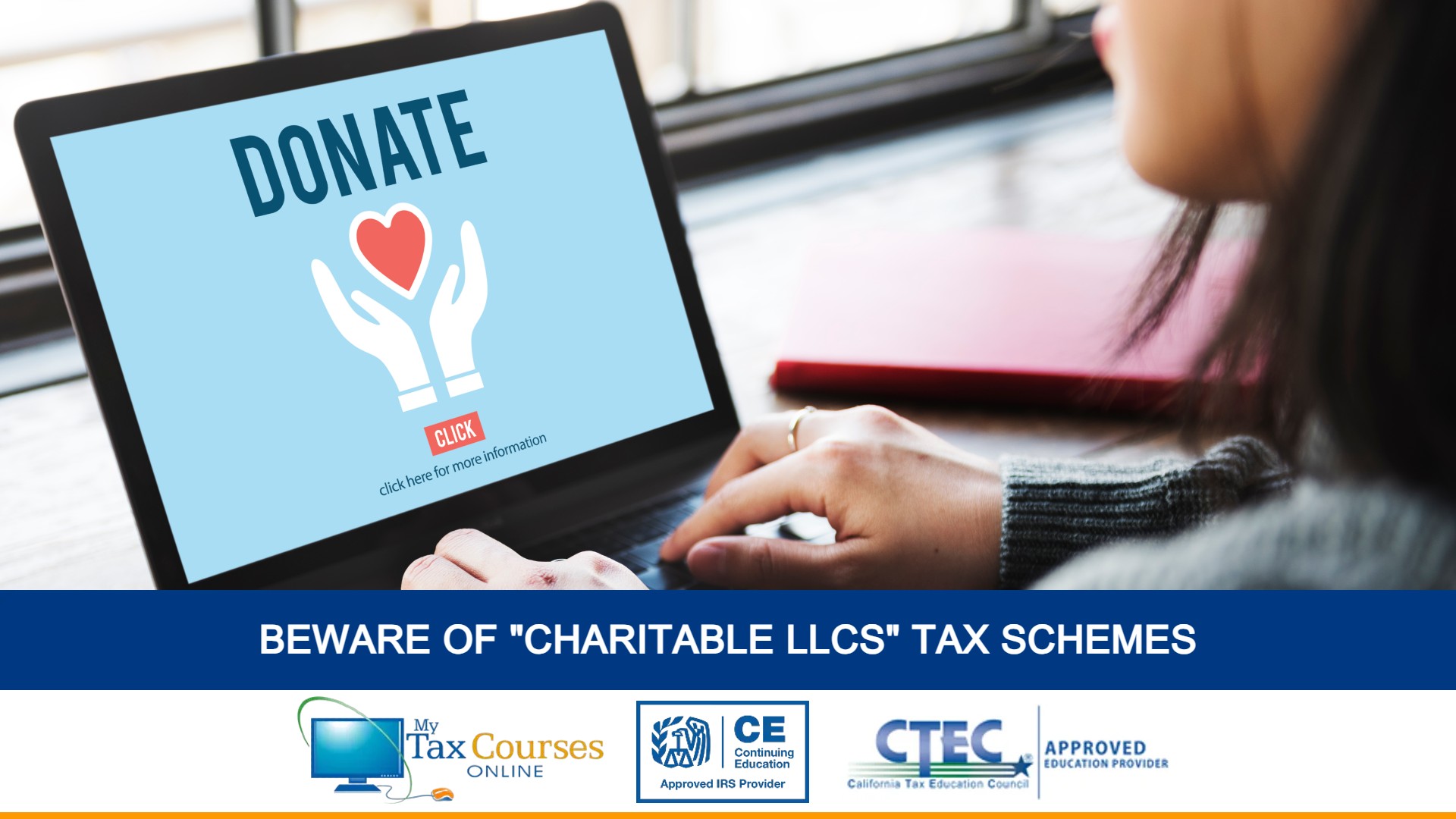As a tax preparer, staying vigilant against fraudulent tax schemes is essential—not only for protecting your clients but also for maintaining your professional reputation. Recently, the IRS warned about abusive tax schemes marketed as "Charitable LLCs." These fraudulent arrangements often target high-income taxpayers, promising significant tax benefits through questionable charitable contribution deductions. Here's what you need to know to safeguard your clients and your practice.
What Are "Charitable LLC" Schemes?
At their core, "Charitable LLC" schemes involve the creation of a limited liability company (LLC) into which the taxpayer transfers cash or other assets. The taxpayer then donates a majority percentage of nonvoting, non-managing membership units to a charity, retaining control over the voting units. In many cases, taxpayers are incorrectly advised that they can continue using the assets personally or reclaim them later.
Promoters of these schemes may even control the charity's acceptance of donations, further muddying the ethical waters. The IRS considers such schemes abusive and warns taxpayers and preparers to avoid them.
Why Are These Schemes Risky?
Participating in a "Charitable LLC" scheme can have serious consequences for your clients, including:
- Audits and Penalties: The IRS is actively investigating these transactions, and taxpayers caught in abusive schemes can face assessments of back taxes, penalties, and interest.
- Legal Consequences: Promoters and participants risk fines, imprisonment, or both. Recent cases have led to convictions for fraud and obstruction.
- Invalid Deductions: Improperly structured donations do not qualify for charitable contribution deductions, leaving taxpayers with unexpected liabilities.
As a tax preparer, you could also face consequences if you are found to have knowingly facilitated such schemes.
Red Flags to Watch For
Be alert to the following warning signs when working with clients who are considering or have already made donations involving LLCs:
- Promises of Tax-Free Wealth: Promoters claiming a charitable contribution can double as a wealth-building strategy often engage in fraudulent practices.
- Creation of Shell Entities: Schemes that require the creation of LLCs or other entities with no legitimate business purpose are suspect.
- Retained Control: If the taxpayer retains control over donated assets or the LLC, the transaction likely does not qualify as a charitable contribution.
- Reclaiming Assets: Promises of buying back donations at a discount or reclaiming assets later invalidate the charitable deduction.
- Specific Appraisers or Charities: Promoters who insist on using certain appraisers or charities may attempt to manipulate valuations and legitimacy.
How to Properly Claim Business Interest Donations
Legitimate donations of closely held business interests require careful documentation and adherence to IRS rules. Here's a checklist for tax preparers:
- Recordkeeping: Ensure your client retains the charity's name and address, the contribution date, and a detailed description of the business interest.
- Acknowledgment: Contributions of $250 or more require a written acknowledgment from the charity.
- Form 8283: For donations exceeding $500, your client must complete and attach Form 8283 to their tax return.
- Qualified Appraisals: Donations over $5,000 require a qualified appraisal, and for contributions exceeding $500,000, the appraisal must be submitted with the tax return.
- Transfer Control: Ensure that the charity receiving the donation has complete control over the donated assets without the donor retaining rights or access.
How You Can Protect Your Clients
Educate your clients about the risks associated with fraudulent charitable deductions and emphasize the importance of transparency. If your client is considering a donation involving an LLC or closely held business interest, review the transaction carefully and consult IRS guidelines.
Reporting Abusive Tax Schemes
If you suspect a client or promoter is involved in an abusive scheme, report it using:
- Form 14242: Report Suspected Abusive Tax Promotions or Preparers.
- TIGTA Hotline: Call the Treasury Inspector General for Tax Administration at 800-366-4484.
By staying informed and proactive, you can help your clients avoid falling victim to these schemes and maintain the integrity of your practice.
Resources for Further Reading
- Publication 526: Charitable Contributions
- Publication 561: Determining the Value of Donated Property
- Form 8283: Noncash Charitable Contributions
Conclusion
It's crucial to be on the lookout for abusive schemes like "Charitable LLCs." Educating yourself and your clients, adhering to IRS regulations, and recognizing red flags can help ensure compliance and protect both parties from severe consequences.





